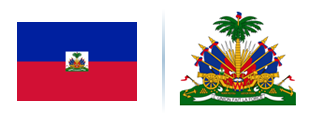Last Update: October 2021


| International Covenant on Economic, Social and Cultural Rights | International Convention on the Elimination of all Forms of Racism | Convention on the Rights of Persons with Disabilities | Convention on the Elimination of all Forms of Discrimination against Women | Convention on the Rights of the Child | International Convention on the Protection of the Rights of All Migrant Workers and Members of their Families | Constituent Agreement of the Development Fund for Indigenous Peoples in Latin America and the Caribbean |
| 8 October 2013 | 19 December 1972 | 23 July 2009 | 20 July 1981 | 8 June 1995 | 5 December 2013 | 19 April 2024 |
| View details | View details | View details | View details | View details | View details | View details |
Year of Latest Observed Constitution |
Social Housing |
Work and Social Security |
Public Health |
Public Education |
Social Development |
Children and Adolescents |
Youth/Young Adults |
Women |
Older Persons |
Persons with Disabilities |
Afrodecendants and Indigenous Peoples |
Migrants |
| 1987 | ||||||||||||
| View details | View details | View details | View details | View details | View details | View details | View details | View details | View details | View details | View details |
Children and Adolescents |
Youth/Young Adults |
Older Persons |
Women |
Peoples with Disabilites |
Afrodescendants and Indigenous Peoples |
Migrants |
Public Education |
Work and Social Security |
Social Housing |
Public Health |
Social Development |
|
| Legal Instrument | n.d. | n.d. | n.d. | n.d. | n.d. | n.d. | n.d. | n.d. | Codigo de Trabajo | n.d. | n.d. | n.d. |
| Law |
| Country | Haiti |
| Main authority | National Commission for the Fight against Hunger and Malnutrition |
| Year of creation | 2012 |
| Coordinating authority | |
| Members | Ministry of Planning and External Cooperation; Ministry of the Interior and Territorial Collectives; Ministry of Foreign Affairs and Cultures; Culture Ministry; Ministry of Haitians Abroad; Minister delegated to the Prime Minister responsible for electoral affairs; Ministry of Social Affairs and Labor; Ministry of Public Health and Population; Ministry of Agriculture, Natural Resources and Rural Development; Ministry of Communications; Ministry of Economy and Finance; Ministry of Defence; Ministry of Trade and Industry; Ministry of the Status and Rights of Women; Ministry of Education and Vocational Training; Ministry of Sports; Ministry of Public Works, Transport and Communications; Ministry of Justice and Public Security; Ministry of Environment; Ministry of Tourism and Creative Industries, and Minister delegated to the Prime Minister in charge of the Government's social programs and projects. |
| Country | Haiti |
| Main authority | Ministry of Social Affairs and Labour |
| Year of creation | 1983 |
| Mission | To define and implement the Government's social policy; to guarantee the protection of workers in the formal and informal sectors of the economy and improve living and working conditions; establish, on the basis of national solidarity, an adequate social security regime against physical, economic, social and other risks; lead the fight against hunger, malnutrition, unemployment and indigence; create, authorize, promote and supervise social assistance works, both public and private. |
| Incumbent | Pierre Ricot Odney (2022) |
| Population segment | Children and Adolescents |
Youth/Young Adults |
Older Persons |
Persons with Disabilities |
Women |
Migrants |
| Main protection mechanism | Ministerio de la Condición Femenina y los Derechos de las Mujeres | |||||
| Legal Instrument |
|
Technical-operational dimension | |||||||
| Unique Registry of Participants | Sistema Integrado de Administración Financiera /b | Sectoral Plan for Social Development | Transparence - system for accessing public information from the State | Integrated Social Information System |
Evaluation mechanisms for social programs |
|||
General |
Sectorial |
General |
Sectorial |
|||||
| Ministry of Social Affairs and Labor | ||||||||